About Oregon Tradeswomen
Wish List
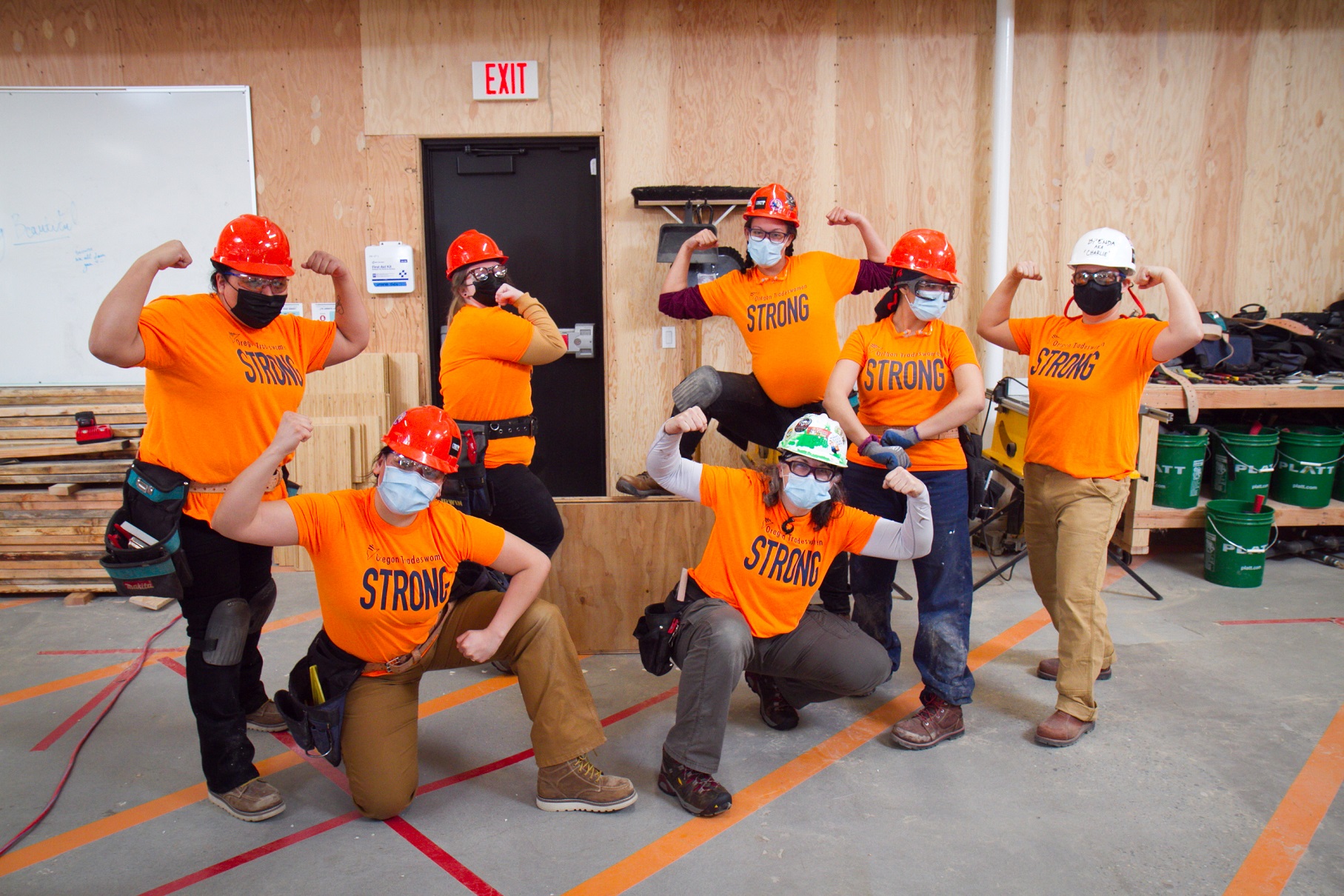
Oregon Tradeswomen is committed to providing quality Pre-Apprenticeship training, but sometimes we need a little help from our community to make sure our students have the tools and gear they need to have a well-rounded trades education!
Whether you have some used items gathering dust in your garage or feel inspired to donate new equipment, Oregon Tradeswomen welcomes your help.
At this moment, our biggest needs are:
- New computers to run AutoCAD. Autodesk came through for us in a big way by donating AutoCAD software to improve our teaching! Now, we need help securing compatible computers capable of running this powerful program.
- At least 8 Milwaukee Tool, 18 Volt Lithium-Ion Power Tool batteries. Last year when COVID required us to teach without the sharing of tools – Milwaukee Tool donated enough for each student to have their own workstation.
Can you help us keep students working? Other items on our wish-list:
- 25’ 12 and 14 gauge extension cords
- Shop clamps of various sizes
- Klein wire strippers (45-120 T5 10-18 AWG)
- Milwaukee Tools Jigsaw (2781-20 – 5″ w/ slide lock bare tool)
- 24″ computer monitors
Thank you SO much for making a difference in a woman’s life!
A Peek Behind the Curtain – And a Big Thank You
Bringing in the money to keep nonprofits going, year after year, is mostly like a big patchwork quilt your grandma made. It has:
- Bits of solid old fabric (funders who are with you year after year)
- Patches of new fabric (new donors) to cover the worn spots
- Yearly mending to keep the quilt from fraying as the years go by.
Those of us who work at nonprofits often ask each other about this patchwork and share stories of pain and triumph. 2020 started as a year full of hope and excitement – we moved into our beautiful new workshop and training facility in January. We set up desks for our newly expanded staff and welcomed the first group of students into the new classroom where we expected to serve more women and do it more effectively than ever before. On track to offer classes in the evenings and on weekends, we had finally removed one of the historic barriers preventing more women from taking advantage of this free, life changing resource.
As the year wore on, it felt like the rug was pulled out from under our feet with COVID health and safety restrictions forcing us to cancel classes and our oh-so-beloved annual Career Fair.
But then the light started to shine through the window and help started to show up in many different forms:
- We’re grateful to the Foundation Partners who called to say that our grant funding could be used to simply get through the year.
- Long time industry partners, hearing about lost funding, said – “how can we help?” – then they dug deep and doubled or tripled their “normal” investment.
- A ten year old named Earlie, who saves her money all year to help local nonprofits, sent in a gift of $25 (Thank you Earlie!)
- When we needed extra tools to set up the training workshop in a COVID-safe way, and I couldn’t reach my local contacts, the leadership team at Milwaukee Tools simply said “Don’t worry, we’ll take care of you”
- When we needed extra lumber and supplies to re-start training, Parr Lumber and Platt Electric donated everything on our wish list.
- A woman I’ve never met knocked on the front door, told me she had known about our work for some time and thought we might need some help. She sat and wrote us a check saying, “Use it wherever you need it most”.
- In the first two weeks of the Willamette Week Give!Guide, half of all the donors have made their first gift to the organization.
We’re grateful for every person, for every dollar and for every kind word that has helped us get through this year – including Laura, who sent in $10 and said “I’m unemployed right now, I wish this was more”.
To every single person who has invested in our work and the mission of OTW, and who’s helping us put women to work, giving them and their families a secure future – YOU will forever be part of our well loved patchwork quilt.
Thank you,

Lisa Palermo
Development Director
A Gift From 99 Girlfriends
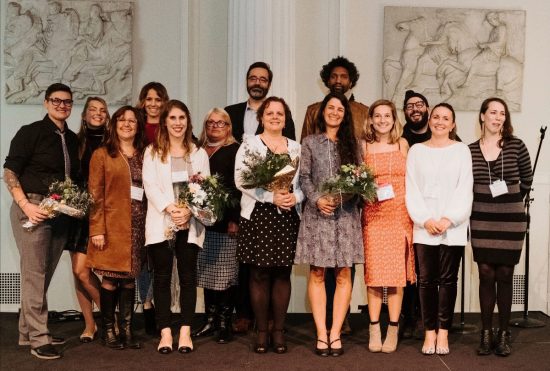
Representatives of the 5 Non-Profit Winners of 99 Girlfriend’s Impact Grants!
We at Oregon Tradeswomen are big fans of stories that start with a couple of friends and a bold idea. In 30 years, Oregon Tradeswomen has grown from small support group meetings in a basement to a dynamic nonprofit. Today, Oregon Tradeswomen offers hands-on training, job placement, supportive services, and advocacy for women, trans, and gender-diverse people seeking fulfilling, living-wage careers in the skilled trades. We’ve experienced first-hand the power of coming together to create meaningful change in our community.
In 2017, a few friends here in Portland had a similar idea; what if, instead of each of them making many donations to Portland’s nonprofits, they pooled their resources in order to make a significant impact? The result was Ninety-Nine Girlfriends, a women’s giving circle currently comprised of 480 members. This model of one person asking a friend to join her and pitch in, to use her resources to lift others up, is very near to our hearts! In its first year, Ninety-Nine Girlfriends made one $100,000 grant to a Portland nonprofit. In 2019, they were able to offer five such awards, one in each of their focus areas:
- Arts & Culture
- Education & Lifelong Learning
- Environment & Sustainability
- Family & Human Services
- Health & Wellness.
Oregon Tradeswomen is honored to be a 2019 recipient of Ninety-Nine Girlfriend’s Impact Grant. This transformational gift will go a long way in helping Oregon Tradeswomen achieve our long-time goal of expanding training options with evening and weekend classes once we are settled in our new location and training workshop in early 2020. We want to thank each and every one of the 480 Girlfriends for their support and generosity.
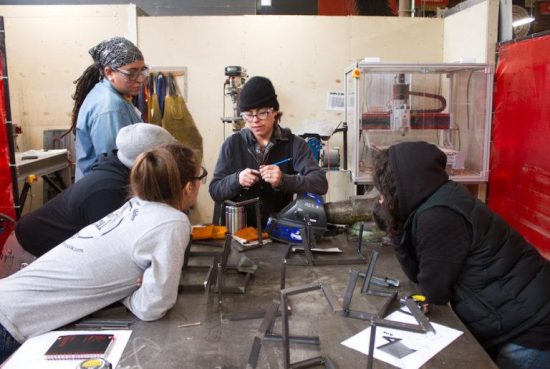
Oregon Tradeswomen is especially grateful to Vanessa Vasquez, Isis Harris, and Heather Mayther, who shared their stories during the application and review process.
Thank you, Ninety-Nine Girlfriends, for your support and generosity, and to all our funders and individual donors who have supported us this year.
To find out more information about 99 Girlfriends and their 2019 Grantee Partner winners, please visit their website here!
Happy Holidays,
Oregon Tradeswomen
You Built With Us!

Build With Us!, Oregon Tradeswomen’s third annual Blue Collar Gala, was filled to capacity with excitement, generosity and a few happy tears! YOU turned out in force with an overwhelming outpouring of support that exceeded our goal and will help set us up to serve even more tradeswomen in our new training facility in January. The incredible spirit of community and unwavering commitment to equity, inclusion, and economic justice is humbling.
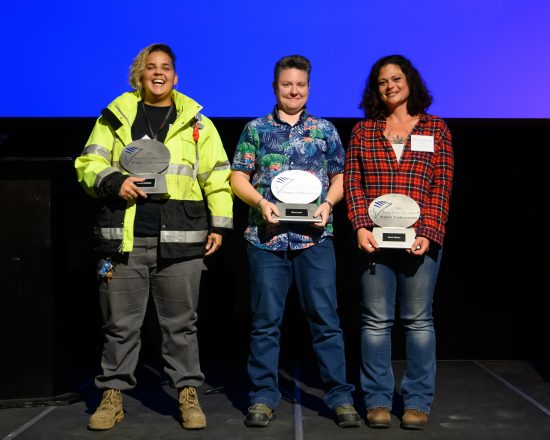
Congratulations to four incredible people, nominated by the industry and awarded for their commitment to being leaders in their trades. Valerie Curbelo, Shaz Lynch, Sara Moore, and Aisha Winters (Not Pictured) were selected for the award by Oregon Tradeswomen’s Board of Directors, not an easy feat considering the field of 27 exceptional nominees.
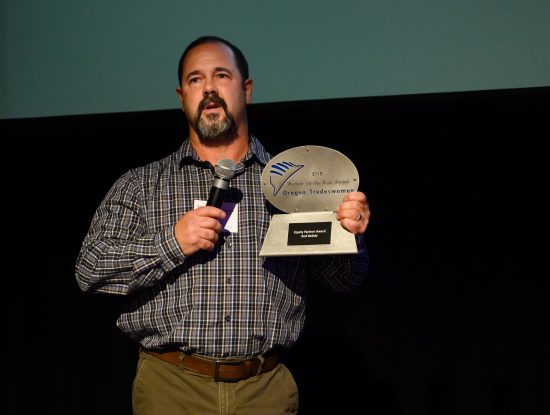
Two new honors were also awarded this year: The Equity Partner Award and the Wanda Hall Legacy Award. The Equity Partner Award was given to Rod Belisle, Training Director at the NECA-IBEW Electrical Training Center, to honor his commitment to increasing diversity in the electrical trade, and for being an incredible partner to Oregon Tradeswomen.
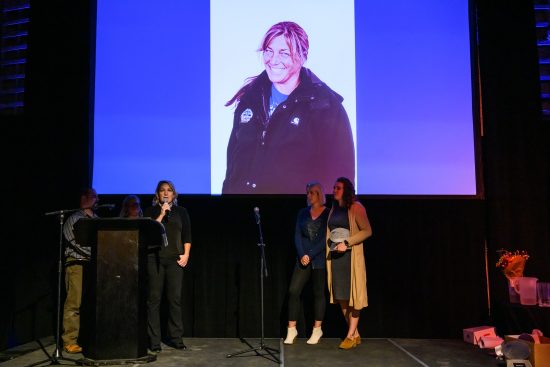
The other new award in 2019 was a posthumous award presented to the daughters of Wanda Hall of the Portland Water Bureau. Wanda’s enthusiasm and dedication to uplifting women in the trades through support and mentorship will be missed. Starting in 2020, Oregon Tradeswomen will solicit nominations for the Wanda Hall Legacy Award to honor other women in the trades whose commitment to informing and mentoring the next generation stands out. Oregon Tradeswomen salutes all the winners and nominees for their perseverance, passion, and grit, and thank them for their many contributions to our community, industry, and movement.
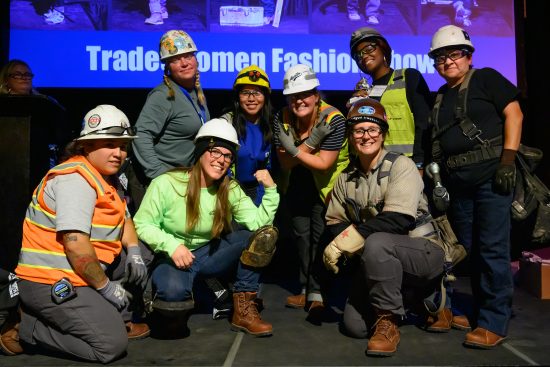
The staff and board of Oregon Tradeswomen thank you from the bottom of our hearts for your generosity – helping us build the future home of Oregon Tradeswomen and increasing our capacity to help more women change their lives. Thank you for helping us pave a pathway to prosperity for the women who want to work in construction and a brighter future for our region’s construction workforce and industry.
We hope you had a wonderful time and we look forward to seeing you next year!
Preserving the Registered Apprenticeship Model
Since the introduction of the Industry Recognized Apprenticeship Program (IRAP) concept, there has been concern in the field about creating another form of apprenticeship including oversight, alignment, equity components, and guidance on how employers implement anti-harassment and discrimination requirements as well as other issues such as portability, and industry standards. The DOL’s proposed rule would formally include IRAPs in the Code of Federal Regulations (29 CFR Part 29) that govern the RA system under the National Apprenticeship Act of 1937.
Additionally, the rule aims to establish a process to authorize third-party “Standards Recognition Entities (SREs)” that would recognize IRAPs. The proposed rule describes what entities may become SREs; what their responsibilities and requirements would be; hallmarks of the high-quality apprenticeship programs they would recognize; and how the administrator of the Office of Apprenticeship would interact with them. The rule also describes how IRAPs would operate in parallel with the RA system.
This proposed rule change is an important moment that will affect the future of apprenticeship and access, opportunity and equity in apprenticeship – please take time to respond to public comment in sharing your knowledge and expertise during this comment period.
Download the Talking Points document
The deadline to submit comments is August 26, 2019! Please make your voice heard!
Tradeswoman and Mother Trillium Ward

No one said it was easy being a tradeswoman and a mom, but being a tradeswoman can give you the financial security to provide for your family. Trillium Ward began her journey into the skilled trades as a single mother of two, working as a drug and alcohol counselor for kids and young adults. Her job as a counselor was challenging work that only paid $12.50 an hour, hardly enough to support a family of three. Public assistance was helpful, but this was not the life Trillium imagined for herself. She had always loved working with her hands and took wood-shop, metal-shop, and other vocational programs her high school offered which focused on hands-on learning. With these experiences, the skilled trades started to look quite appealing as a new career option.
Trillium first applied to become an electrical apprentice with the IBEW, but didn’t score high enough on the application process to enter the program. After hearing about Oregon Tradeswomen around the community, she decided to enroll in the pre-apprenticeship program, the Trades and Apprenticeship Career Class (TACC). She knew that going through this program would be like receiving an endorsement of her qualifications and ability to succeed in the field. She was accepted to a special session of TACC that ran at night, which allowed her to continue working full time to support her family. If that wasn’t enough to demonstrate her commitment, she was also simultaneously taking a welding class on weekends!
After all her hard work in Oregon Tradeswomen’s pre-apprenticeship program, Trillium graduated from TACC, re-applied to the IBEW’s apprenticeship program, and was accepted! As an apprentice, she immediately made $3 more per hour than she did as a drug and alcohol counselor. Being a single mother at the time, it was imperative to have a support network of family and other moms to help out with childcare because a typical day for Trillium started at 4:00 am! Thankfully, just 6 months into her apprenticeship, Trillium made enough money to get off of state assistance and afford daycare. Her advice to mothers thinking about pursuing a career in the trades is to “make sure you have reliable daycare that can accommodate early mornings and the ability to be flexible with your schedule!”
Just 5 years after starting on this new path, Trillium journeyed out of the Electrical apprenticeship! This is an incredibly proud accomplishment for her, because she managed to meet all of the strict program requirements around attendance and grades, all while having a new baby with her partner. Trillium is currently working for Oregon Electric Group where she runs bus ducts, installs conduits, pulls wire, creates panels, and installs lights among – other things. Trillium loves how her work keeps her brain engaged – whether she is learning new technology, new skills, or being put in different situations requiring adaptation and problem-solving. The hardest part about her job is the lack of continuity. When the people you work with, your start time, and your commute change regularly, its hard to plan for the future.
The biggest barrier Trillium faces as a woman in the trades is not outright harassment, but that compared to the men on her crews, she is not taken seriously. As a result, she has to to above and beyond to prove herself on every job-site – otherwise the men frequently assume that she isn’t competent. This becomes exhausting when you’re changing job-sites regularly – having to prove your worth with a new crew each time. Trillium’s advice for other tradeswomen is to help support other women. Solidarity is important in this field, so when you see other women, reach out, because the isolation can be hard.
In the end, the hard work pays off. Trillium says, “The amount of change in my financial status, going from poverty and living paycheck to paycheck, to financial freedom where I can buy a home and go on vacation has made a world of difference in my life and my children’s lives.”
A Pathway to Green Careers

The Environmental Protection Agency (EPA) is invested in creating work opportunities in remediation and abatement in their own communities. Remediation and abatement are the methods used when a substance or practice in the construction industry is harmful to the environment and community. Remediation is the concept of using special techniques to make sure workers stay safe when dealing with hazardous materials such as lead and asbestos. Abatement is the process of removing the environmental threat so the entire community stays safe.
Often times, the remediation work needing to be done in a community is conducted by out of state workers. Oregon Tradeswomen’s Training Director, Amy James Neel, emphasizes, “Bringing in workers from out of state is a problem because these are high-skill, high-paying jobs. When people come in from out of state to do the work, those workers take their skills and their money with them out of the community and out of the state when the job is done.” In response, the EPA developed the Brownfields Program in 1995 to provide funding for training marginalized communities to enable them to access these important, high-paying jobs.
Oregon Tradeswomen has received Brownfields Program funding for many years, introducing our pre-apprenticeship students to career opportunities in our community dealing with remediation, alternative energy, material reuse, and cleaning up the federally recognized pollution sites affecting the Columbia and Willamette rivers.
Oregon Tradeswomen’s Environmental Worker Training Track is a two-week optional training providing our students necessary skills and certifications to pursue competitive careers in the industry. Oregon Tradeswomen’s pre-apprenticeship students are shown a broad spectrum of possible careers in environmental remediation, anything from spill response, biohazard cleanup, wind-turbine maintenance, asbestos removal, and weatherization, just to name a few. One of the most advantageous aspects of the Brownfields EPA Grant funding is that it allows Oregon Tradeswomen to assist students beyond the two week training track! We are able to support students who are truly dedicated to pursuing careers the EPA deems beneficial to the environment by helping interested students obtain certifications giving them a competitive edge in their job search. For example, if a student is interested in deconstruction, we can help them get an RRP Certification which shows that they know how to safely work around lead.
Oregon Tradeswomen’s program has adapted over the years we have implemented this training, as our curriculum is based specifically on community needs and the jobs opportunities connected to those needs. At the present time, the demand for green/energy efficient practices and solar PV installations in residential buildings are growing quickly. In response, Oregon Tradeswomen has partnered with Energy Trust of Oregon to integrate an “Introduction to Green Construction and Solar PV” segment for the two-week training track delivered by Earth Advantage. During this in-depth training, our students learn about the following high performance building best practices and career opportunities in the green building and renewable energy industries:
- Energy Efficiency
- Health & Indoor Air Quality
- Sustainable Materials
- Water Conservation
- Land Management
- Solar Photovoltaics (PV)
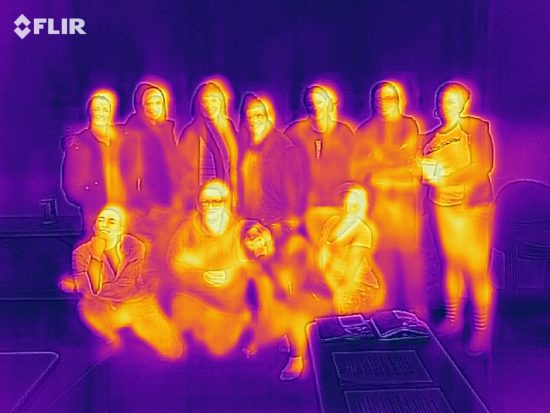
As an added incentive, Energy Trust provides scholarships to participate in a 6-month Sustainable Homes Professionals (SHP) accreditation training offered by Earth Advantage that takes place every fall in Portland. Funding for scholarships was provided by Energy Trust to support student scholarships for Oregon Tradeswomen, as part of its overall efforts to expand training for energy efficiency and renewable energy in the building industry. Discounts for Minority and Women Business Enterprise (M/WSB) certified firms for this accreditation training are also available and provided by Earth Advantage.
Oregon Tradeswomen graduate Chelsea Acker recently received the SHP scholarship and excelled in the course, which led her to join the team at Green Hammer, a design-build firm delivering eco-friendly homes, renovations, and communities. In a note to Earth Advantage, Chelsea said:
“I am writing to extend many thanks and extreme gratitude to Earth Advantage. I am one of the SHP Scholarship awardees from the current SHP class. I graduated from Oregon Tradeswomen this past summer and knew I wanted to start my career in carpentry working for a company that focused on high performance energy efficient and sustainable builds. The SHP class was recommended to me as a way to learn more about building science and meet others who are active in this field. Within a few months into the course, I found myself passionate about building science, and applying for jobs. I was hired full-time at Green Hammer just a few weeks ago and it is my dream job! I can’t believe I am getting to begin my career with such an amazing company that aligns so clearly with my ethics, values, and passion. I honestly DO NOT believe that I would have gotten the job if it weren’t for this SHP course, and there is no way as a woman entering the field with little to no experience that I would have been able to afford this course on my own. I am extremely grateful and humbled by this opportunity and wanted to extend many many thanks for believing in me and giving me this chance. This course made is possible for me to enter into the trades with a focus on high performance energy efficient homes/buildings.”
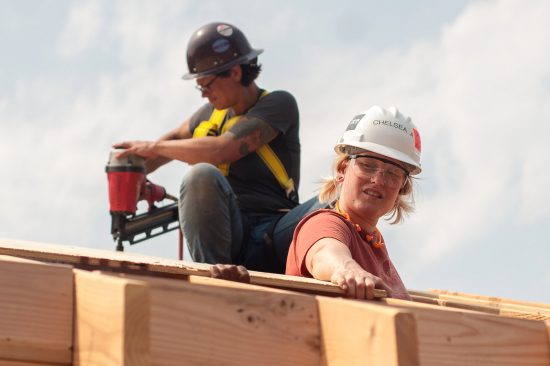
Oregon Tradeswomen is tremendously grateful for the opportunity to work with community partners in the green construction industry under the EPA’s grant. With this support, Oregon Tradeswomen is able to help our pre-apprenticeship graduates gain valuable skills to pursue a living wage career all while helping our local community. This funding also allows Oregon Tradeswomen to support our industry partners with exceptional, and appropriately certified employees who will go on to make the Earth a safer and more inhabitable place.
Helen Getchell Women of Color in the Trades Fund
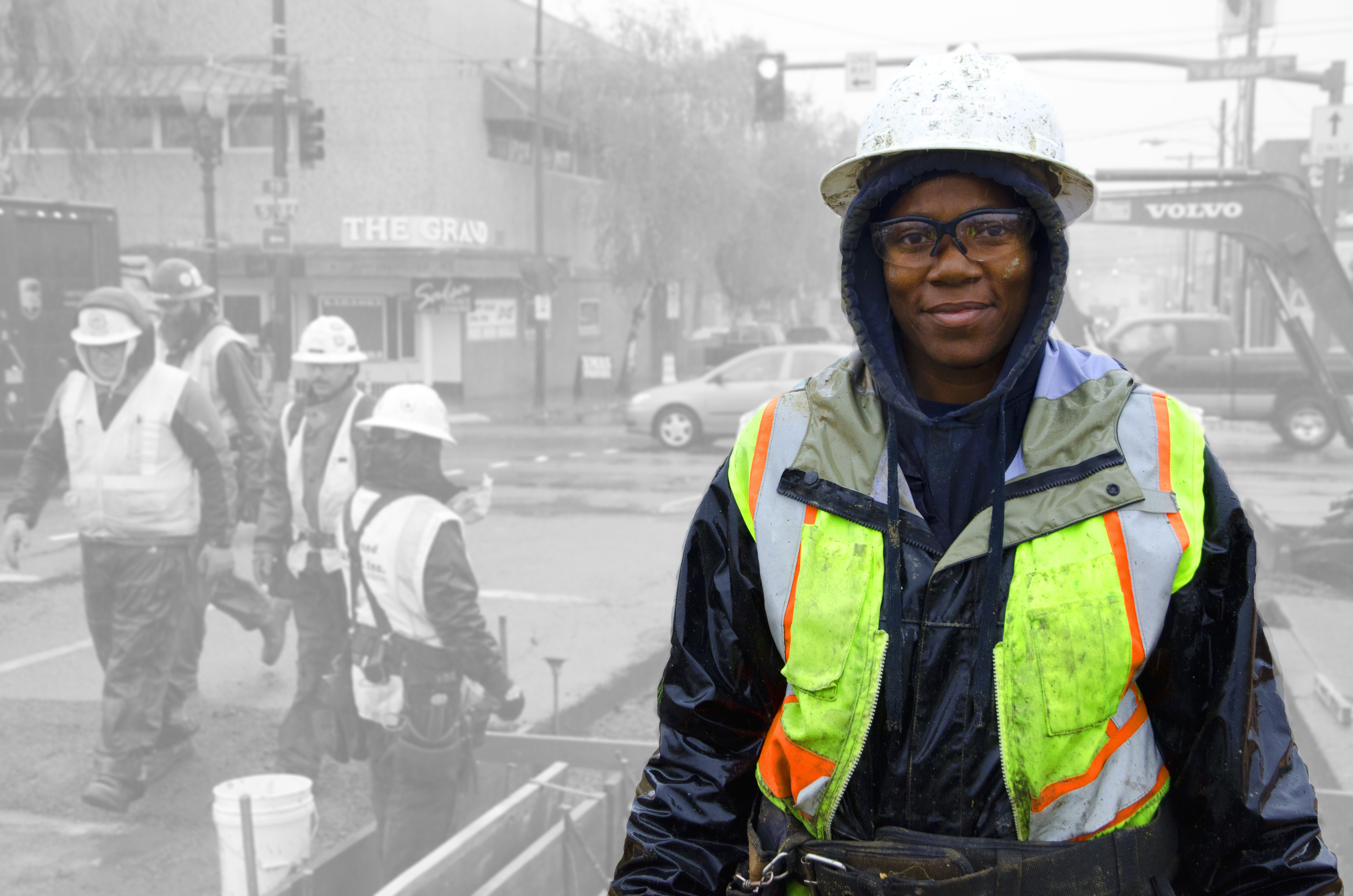
Oregon Tradeswomen is committed to increasing the participation of women in the skilled trades, and we have shifted our outreach to focus on women of color who remain significantly under-represented in the construction industry, here in Oregon and across the nation.
We know women of color leave the construction industry at higher rates than both white women and their male counterparts, and Oregon Tradeswomen is working to address barriers and increase retention. There are many factors contributing to these high attrition rates, and Oregon Tradeswomen is working to help address those issues.
- We are focusing on strong public policy to ensure participation goals are in place on public project for a diverse workforce.
- We are working to create access to quality, affordable childcare.
- We are committed to addressing harassment and discrimination in the workplace.
These are just some of the ways we seek to shift the numbers, support our industry, and improve outcomes for workers in our communities. The Helen Getchell Fund was established to specifically provide support to help increase the retention of success of our sisters of color in the construction industry.
More about The Helen Getchell Women of Color in the Trades Fund
The Helen Getchell Women of Color in the Trades Fund is a designated fund housed and managed at Oregon Tradeswomen. Through the fund, women of color who demonstrate need are provided with direct financial support to successfully complete pre-apprenticeship and enter into employment and registered apprenticeship in the skilled trades.
The fund is advised by members of the Helen Getchell Giving Circle, which is comprised of the fund’s founder, Charlene Getchell, and invited community and industry stakeholders who are committed to ensuring access, opportunity and equity for women of color in the skilled trades.
Or mail your gift to:
Oregon Tradeswomen
454 SE 187th Avenue
Portland, OR 97233
Happy New Year from Oregon Tradeswomen’s Executive Director
Sarah was just one of the many working women in Oregon who, despite working full-time, was still living below the poverty line. In fact, one third of working women in Oregon head households that live in poverty. Women’s economic security in Oregon is further threatened due to the low rate of high school graduation, ranking us 48th in the nation, lack of affordable housing (47th), and the persistent wage gap –factors which all contribute to an economically fragile demographic.
In 2018, Oregon Tradeswomen made changes to our training program in order to better serve women like Sarah, who simply needed a hand up – not a hand out – in learning new skills that lead to high-wage employment in the skilled trades. Through our Pathways to Success program, our retention services, public policy work, and career education sessions, we were able to serve more women experiencing poverty than ever before, including women with significant barriers to employment. We’ve increased our capacity, we’ve removed impediments to accessing our program, and we’ve increased services so we can help more women change their lives.

In reflecting upon this past year, I am pleased to share that Oregon Tradeswomen has made good progress creating economic opportunity for more women, shifting workplace culture, and addressing systemic and policy barriers which hindered access, opportunity, and equity for women like Sarah. We embarked on a new path, yet one which honors our founding sisters’ vision and mission to promote success for women and girls in the trades. Through a year-long process, which included input from funders, community partners, industry, tradeswomen, program graduates and policy-makers, we have developed a Blueprint for Prosperity, our three-year strategic plan. While it will guide us forward, this document will live and be responsive to both opportunities and challenges which may come our way as we continue to grow and broaden our reach.
Through this plan, we will work ever harder, and more strategically, to serve more women like Sarah who now makes a family-supporting wage and has transitioned from reliance on public benefits to economic independence. Oregon Tradeswomen will continue to be a part of the regional, statewide, and national conversation about the importance of investing in racial and gender equity for our workforce, and the critical need to have good public policy to support such efforts. We will work to be the change we seek.
We invite you to join us in 2019 – come celebrate 30 years of success with us this year! And as we ring in the New Year, and a new path for Oregon Tradeswomen, join us in helping to transform lives.
My sincere gratitude to all of our partners and supporters for all that you do, in 2018 and always, in service of our mission. We look forward to seeing you in 2019 and wish you a Happy, Healthy, and Joyful New Year!
With gratitude,
Kelly Kupcak
Executive Director

From Oregon Tradeswomen to AFSCME
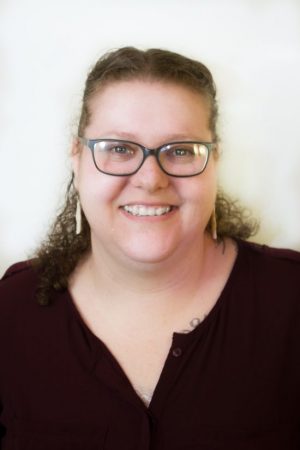 Oregon Tradeswomen is proud to announce that our Director of Advocacy Programs, Tiffany Thompson, has started a new chapter of her career with AFSCME Council 75 as an organizer. She will be working on higher education and behavioral health organizing campaigns as well as developing and training member organizers. Her last day with Oregon Tradeswomen was November 26, 2018.
Oregon Tradeswomen is proud to announce that our Director of Advocacy Programs, Tiffany Thompson, has started a new chapter of her career with AFSCME Council 75 as an organizer. She will be working on higher education and behavioral health organizing campaigns as well as developing and training member organizers. Her last day with Oregon Tradeswomen was November 26, 2018.
Kelly Kupcak, Executive Director of Oregon Tradeswomen stated, “Tiffany has been a tremendous asset not only to Oregon Tradeswomen, but to our industry as a whole, and to the national tradeswomen movement in shifting our conversation from what is wrong, to the powerful impact we can have when we collaborate together. We have been privileged to build our work with her vision and look forward to her continued success at AFSCME.”
Stacy Chamberlain, Executive Director of Oregon AFSCME added, “We couldn’t be more excited to welcome Tiffany Thompson to our team at Oregon AFSCME. Her commitment to worker rights and experience in leadership development and organizing will be huge assets to our organization.”
Tiffany expressed that she will genuinely miss her coworkers and members of Oregon Tradeswomen, but is excited to expand her passion for workers’ rights through the union movement at AFSCME Council 75. Tiffany explained, “I wouldn’t be here if it weren’t for the wonderful experience I have had at Oregon Tradeswomen. I plan to stay an active volunteer and donor of the organization. Most importantly, I know that this move will only deepen the relationship between Oregon Tradeswomen and AFSCME, strengthening our shared fight for respectful workplaces, the rights of working folks, and the leadership of our members. I am grateful to everyone who has believed in me and I look forward to taking on new challenges.”
All of us at Oregon Tradeswomen, from our staff, to our Board of Directors, and our extended community wish Tiffany the very best in this new chapter in her career.

